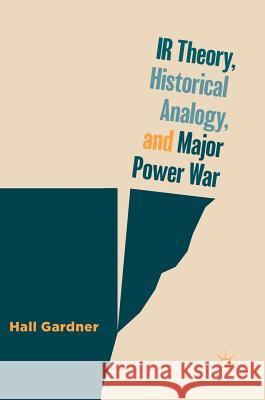IR Theory, Historical Analogy, and Major Power War » książka
topmenu
IR Theory, Historical Analogy, and Major Power War
ISBN-13: 9783030046354 / Angielski / Twarda / 2019 / 339 str.
Kategorie BISAC:
Wydawca:
Palgrave MacMillan
Język:
Angielski
ISBN-13:
9783030046354
Rok wydania:
2019
Wydanie:
2019
Ilość stron:
339
Waga:
0.59 kg
Wymiary:
21.0 x 14.8
Oprawa:
Twarda
Wolumenów:
01
Dodatkowe informacje:
Wydanie ilustrowane











